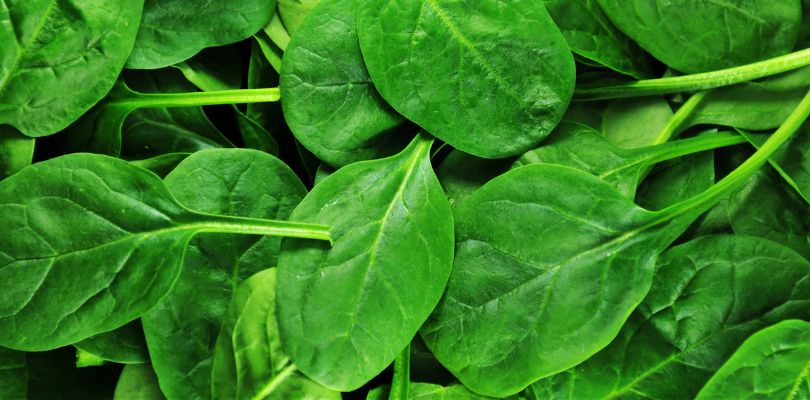A Diet High in Iron Can Help Alleviate Symptoms
Anemia is a condition characterized by a lack of healthy red blood cells, often due to insufficient iron in the body. Iron is a critical component of hemoglobin, a protein in red blood cells that carries oxygen from the lungs to the rest of the body. When iron levels are low, the body can't produce enough healthy red blood cells. This leads to symptoms like fatigue, weakness and shortness of breath. Consuming iron-rich foods can improve anemia symptoms. You can also talk to your doctor about treatment options like Reblozyl, which helps increase red blood cell production.
1. Red Meat
Red meat such as beef, lamb and pork provides a high source of heme iron, which is easily absorbed by the body. Heme iron is derived from animal-based foods and is more bioavailable compared to non-heme iron from plant-based sources. A 3-ounce serving of cooked beef provides about 2.1 mg of iron, making it an ideal choice for individuals looking to increase their iron intake. Additionally, red meat is rich in vitamin B12, another nutrient that helps with red blood cell production.
2. Spinach
Spinach is high in non-heme iron. A cooked cup of spinach provides about 6.4 mg of iron, which is beneficial for people with anemia. Although non-heme iron isn’t as easily absorbed as heme iron, pairing spinach with vitamin C-rich foods, like citrus fruits, can enhance absorption. Spinach also contains folate which is important for the production of red blood cells and overall cellular function.
3. Lentils
Lentils are a great plant-based source of iron, offering about 6.6 mg of iron per cup of cooked lentils. Rich in non-heme iron, lentils are an excellent option for vegetarians or vegans looking to boost their iron levels. They are also packed with protein and fiber, making them a healthy addition to a balanced diet. Combining lentils with vitamin C-rich vegetables, such as tomatoes or bell peppers, can further enhance iron absorption.
4. Liver
Organ meats, especially liver, are one of the richest sources of heme iron. Beef liver, for instance, provides a 6.1 mg of iron per 3-ounce serving. Besides iron, liver is also rich in vitamin A, folate and vitamin B12, all of which support red blood cell production and overall health. While liver may not be everyone's favorite food, incorporating it into your diet occasionally can significantly boost your iron intake.
Sickle cell disease alters the shape of red blood cells so they stick together, which can cause various health issues. Learn more.
5. Pumpkin Seeds
Pumpkin seeds are a convenient snack that offers a decent amount of iron, with 2.5 mg of iron per ounce. These seeds are rich in non-heme iron and also provide essential nutrients like magnesium, zinc and healthy fats. They can be sprinkled over salads, added to smoothies or enjoyed on their own as a snack, making them an easy way to increase iron intake throughout the day.
6. Quinoa
Quinoa is a gluten-free grain that is rich in non-heme iron, providing about 2.8 mg of iron per cooked cup. This ancient grain is also high in protein and contains all nine essential amino acids, making it a complete protein source. Quinoa’s versatility allows it to be used in various dishes, from salads to soups, making it an excellent choice for boosting iron levels, especially for those with dietary restrictions.
7. Tofu
Tofu is a plant-based protein made from soybeans and is an excellent source of non-heme iron. A half-cup serving of tofu contains approximately 3.4 mg of iron. Tofu is also rich in calcium, magnesium and other nutrients that support overall health. It’s a versatile food that can be used in various dishes, from stir-fries to smoothies, making it a great option for people with anemia, especially those on vegetarian or vegan diets.
8. Oysters
Oysters are one of the richest sources of heme iron, with 8 mg of iron per 3-ounce serving. In addition to being packed with iron, oysters are high in zinc, which helps support the immune system. The iron in oysters is highly absorbable, making them a great option for people who need to increase their iron levels quickly. Eating oysters can provide a significant iron boost.
9. Dark Chocolate
Dark chocolate is a surprising source of iron, with a 1-ounce serving providing around 3.4 mg of iron. Not only is dark chocolate offer a satisfying treat, but it also contains other beneficial nutrients like antioxidants, which help fight inflammation in the body. Choosing dark chocolate with a high cocoa content (70% or more) ensures you’re getting a good dose of iron along with other health benefits.
Treatment Options for Anemia
While consuming iron-rich foods is crucial for managing anemia, some individuals may require additional treatments. Treatment options for anemia vary depending on the underlying cause, but they often include iron supplements, intravenous iron therapy and medications.
One treatment option for anemia caused by conditions like beta-thalassemia is Reblozyl (luspatercept-aamt). Reblozyl is a prescription medication that helps increase red blood cell production in people with anemia, particularly those who do not respond well to traditional treatments like iron supplements. It works by targeting proteins involved in red blood cell production, improving hemoglobin levels, and reducing the need for blood transfusions.
For individuals with chronic or severe anemia, it’s essential to work closely with a healthcare provider to determine the best treatment plan, which may include medications like Reblozyl, dietary changes or a combination of both.






